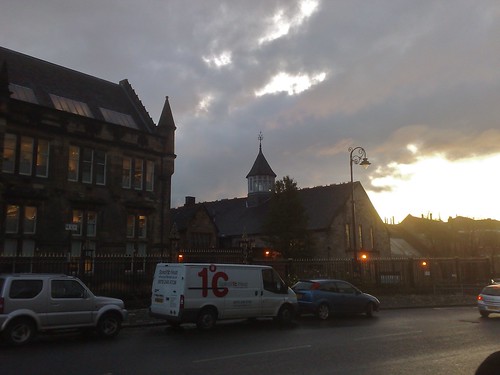Solidarity
I heard the rumblings about job cuts at Francis Close Hall of the University of Gloucestershire a while ago, and in this case — in contradistinction to the case of Sheffield — I didn’t leap into action right away. I didn’t recognize the scholars’ names that protesters were invoking, and I acknowledge that sometimes institutions encounter crises that require job-cutting. Closing down the Biblical Studies program at Sheffield struck me instantly as a case of cutting off your nose to spite your face; it just couldn’t be that Sheffield, or any other institutional custodian of so outstanding, so distinctive a program, would be well-advised to axe that scholarly cedar. But out of fairness, I wanted to hold open the possibility that FCH was a different kind of situation.
But I am, after all, a union guy, a proud (that’s pronounced “prood”) member of the University and College Union, and I don’t want to neglect my colleagues in Gloucestershire. I hadn’t realized that Andrew Lincoln had moved there, for instance; it doesn’t sound that his job is imperiled, but my acquaintance with Andrew piqued my interest in the case. UCU submits that the problem in Gloucestershire arises from mismanagement, and that hard-working scholars’ jobs should be protected; that’s the vexing problem in such labour cases, where the institution’s large-scale losses from poor management decisions oblige the productive workers to pay the price. The reports at the Facebook group page suggest the same picture. On one hand, one can’t with the wave of a hand erase the vast deficit that management has accumulated; on the other, the institution will have a vastly harder time recovering without the benefit of the staff who make it an attractive venue for students. It’s hard to imagine that FCH or the Open Theological College will be strengthened to build up their revenues by dismissing Lloyd Pietersen or other staff.
So I’m about to send a stern demurrer to Paul Bowler at the University of Gloucestershire; late and dire as the situation is, it’s not Lloyd who should be liable for the budget shortfall.
